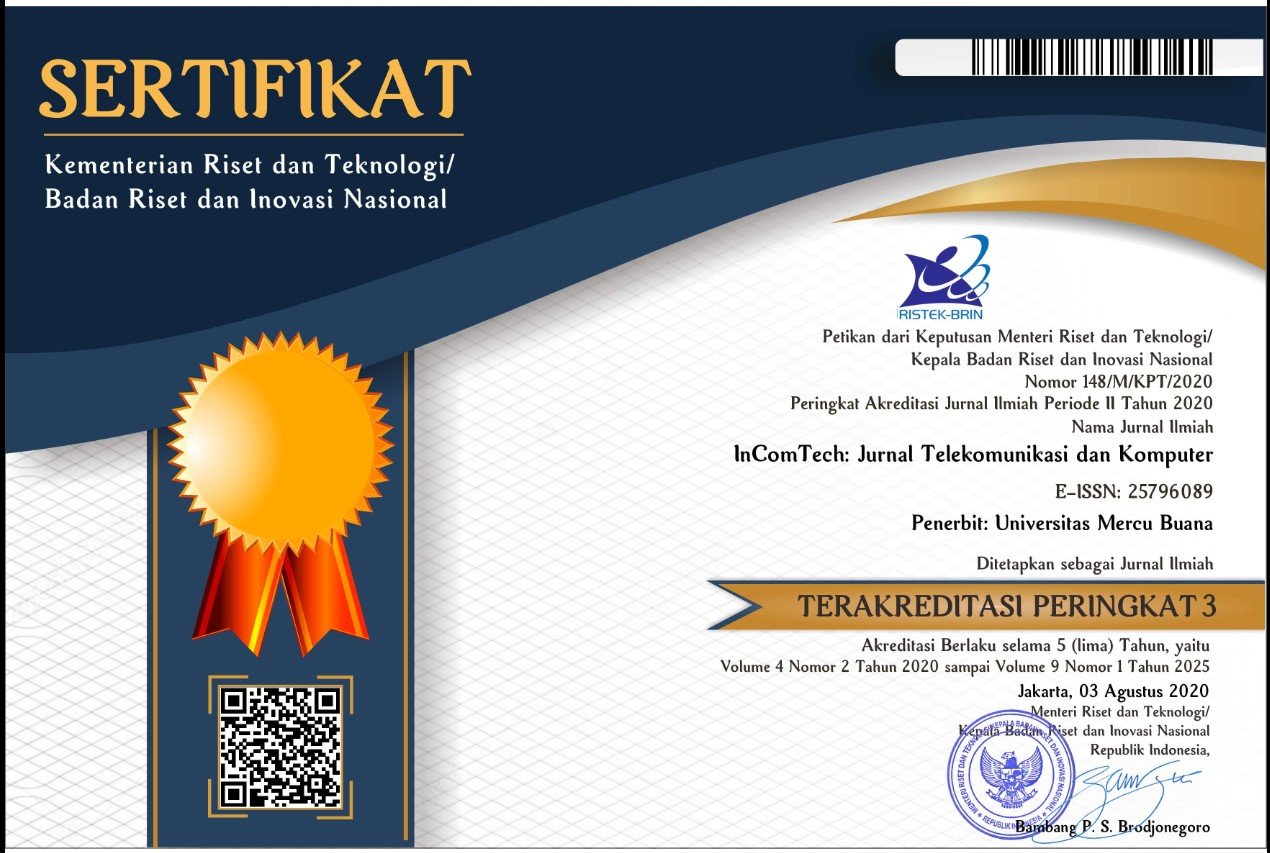Literature Review : Manajemen Risiko Environmental, Social, And Governance (ESG) Dalam Bisnis Berkelanjutan
Abstract
Memasuki era globalisasi dan keterbukaan informasi, isu-isu yang terkait lingkungan, sosial, dan tata kelola (Environmental, Social, and Governance - ESG) kini menjadi salah satu perhatian utama di berbagai sektor industri maupun pemerintahan. Perusahaan saat ini semakin menghadapi tekanan untuk melakukan manajemen risiko lingkungan, sosial, dan tata kelola perusahaan (ESG) secara efektif. Keterlibatan investor, tuntutan konsumen yang semakin sadar lingkungan, serta regulasi yang ketat semakin mendorong perusahaan untuk memperhitungkan dampak ESG dalam strategi bisnis mereka. Seiring meningkatnya kesadaran dan permintaan dari investor, banyak perusahaan sekarang menghadapi tekanan untuk mengintegrasikan kriteria ESG ke dalam strategi dan operasional mereka. Tantangan utama dalam pengelolaan risiko ESG adalah kompleksitas dan ketidakpastian yang terkait dengan dampak jangka panjang dari isu-isu ini. Dalam konteks ini, penting bagi perusahaan untuk memahami dan mengelola risiko ESG secara proaktif. Hal ini tidak hanya untuk memenuhi ekspektasi pemangku kepentingan, tetapi juga untuk memastikan keberlanjutan bisnis di masa depan. Metode yang digunakan dalam penelitian ini adalah metode literature review. Teknik di dalam menemukan artikel atau literatur dengan menggunakan pencarian pada database jurnal seperti google scholar, SSRN, research get dan website sejenis lainnya. Kata kunci dalam menemukan artikel yaitu risiko ESG dalam bisnis berkelanjutan (ESG risk in sustainable business). Hasil dari kajian literatur menemukan bahwa manajemen risiko ESG memainkan peran penting dalam memastikan bahwa perusahaan mampu mengenali, mengukur, mengelola, dan memitigasi risiko yang mencangkup dimensi lingkungan, sosial, dan tata kelola.
Keywords
Full Text:
PDFReferences
Bansal, P., & Clelland, I. (2004). Talking trash: legitimacy, impression management, and unsystematic risk in the context of the natural environment. Academy of Management Journal, 47(1), 93-103. https://doi.org/10.2307/20159562
Boote, D. N., & Beile, P. (2005). Scholars before researchers: On the centrality of the dissertation literature review in research preparation. Educational Researcher, 34(6), 3-15
Clark, G. L., & Feiner, A. (2015). From the stockholder to the stakeholder: How sustainability can drive financial outperformance. Journal of Sustainable Finance & Investment, 10(2), 125-150. https://dx.doi.org/10.2139/ssrn.2508281
Clarkson, P. M., Li, Y., Richardson, G. D., & Vasvari, F. P. (2008). Revisiting the relation between environmental performance and environmental disclosure: An empirical analysis. Accounting, Organizations and Society, 33(4-5), 303-327. https://doi.org/10.1016/j.aos.2007.05.003
Creswell, J. W. (2018). Research Design: Qualitative, Quantitative, and Mixed Methods Approaches. Sage Publications.
Du, S., Bhattacharya, C. B., & Sen, S. (2010). Maximizing Business Returns to Corporate Social Responsibility (CSR): The Role of CSR Communication. International Journal of Management Reviews, 12(1), 8-19. https://doi.org/10.1111/j.1468-2370.2009.00276.x
Dyck, B., Walker, K., & Caza, A. (2019). Antecedents of sustainable organizing: A look at the relationship between organizational culture and the triple bottom line. Journal of Cleaner Production, 231, 1235–1247. https://doi.org/10.1016/j.jclepro.2019.05.287
Eccles, R. G., Ioannou, I., & Serafeim, G. (2014). The Impact of Corporate Sustainability on Organizational Processes and Performance. Management Science, 60(11), 2835-2857. https://www.jstor.org/stable/24550546
Eccles, R. G., Krzus, M. P., & Serafeim, G. (2011). Market Interest in Nonfinancial Information. Journal of Applied Corporate Finance, 23(4), 113-127. https://doi.org/10.1111/j.1745-6622.2011.00357.x
Elkington, J. (1998). Accounting for the triple bottom line. Measuring Business Excellence, 2(3), 18–22. https://doi.org/10.1108/eb025539
Fachrezi, M. F., Fauziah, S., Iqbal, M., & Firmansyah, A. (2024). ESG RISK dan Nilai Perusahaan di Indonesia. Akuntansiku, 3(2), 64–76. https://doi.org/10.54957/akuntansiku.v3i2.691
Flammer, C. (2015). Does Corporate Social Responsibility Lead to Superior Financial Performance? A Regression Discontinuity Approach. Management Science, 61(11), 2549-2568. https://dx.doi.org/10.2139/ssrn.2146282
Fink, A. (2014). Conducting research literature reviews: From the Internet to paper. Sage Publications.
Friede, G., Busch, T., & Bassen, A. (2015). ESG and financial performance: aggregated evidence from more than 2000 empirical studies. Journal of Sustainable Finance & Investment, 5(4), 210-233. https://doi.org/10.1080/20430795.2015.1118917
Gompers, P., Ishii, J., & Metrick, A. (2003). Corporate Governance and Equity Prices. Quarterly Journal of Economics, 118(1), 107-156. https://dx.doi.org/10.2139/ssrn.278920
Khan, M., Serafeim, G., & Yoon, A. (2016). "Corporate sustainability: First evidence on materiality." The Accounting Review, 91(6), 1697-1724. https://dx.doi.org/10.2139/ssrn.2575912
Luo, L., & Tang, Q. (2014). "Does voluntary carbon disclosure reflect underlying carbon performance?" Journal of Contemporary Accounting & Economics, 10(3), 191-205. https://doi.org/10.1016/j.jcae.2014.08.003
Searcy, C. (2012). "Corporate sustainability performance measurement systems: A review and research agenda." Journal of Business Ethics, 107(3), 239-253. https://doi.org/10.1007/s10551-011-1038-z
Schaltegger, S., Lüdeke-Freund, F., & Hansen, E. G. (2012). Business Cases for Sustainability: A Stakeholder Theory Perspective. Journal of Business Ethics, 110(1), 1-14. https://doi.org/10.1177/1086026617722882
Shleifer, A., & Vishny, R. W. (1997). "A Survey of Corporate Governance". The Journal of Finance, 52(2), 737-783. https://doi.org/10.1111/j.1540-6261.1997.tb04820.x
Snyder, H. (2019). Literature review as a research methodology: An overview and guidelines. Journal of Business Research, 104, 333-339. https://doi.org/10.1016/j.jbusres.2019.07.039
DOI: http://dx.doi.org/10.22441/jdm.v7i2.28308
Refbacks
- There are currently no refbacks.
Copyright (c) 2024 Jurnal Doktor Manajemen (JDM)

This work is licensed under a Creative Commons Attribution-NonCommercial 4.0 International License.
Jurnal Doktor Manajemen (JDM)
Program Doktor Manajemen - Fakultas Ekonomi dan Bisnis
Universitas Mercu Buana
Jl. Raya Meruya Selatan, Kembangan, Jakarta 11650
Tlp./Fax: +62215871335

This work is licensed under a Creative Commons Attribution-NonCommercial 4.0 International License.
View My Stats








